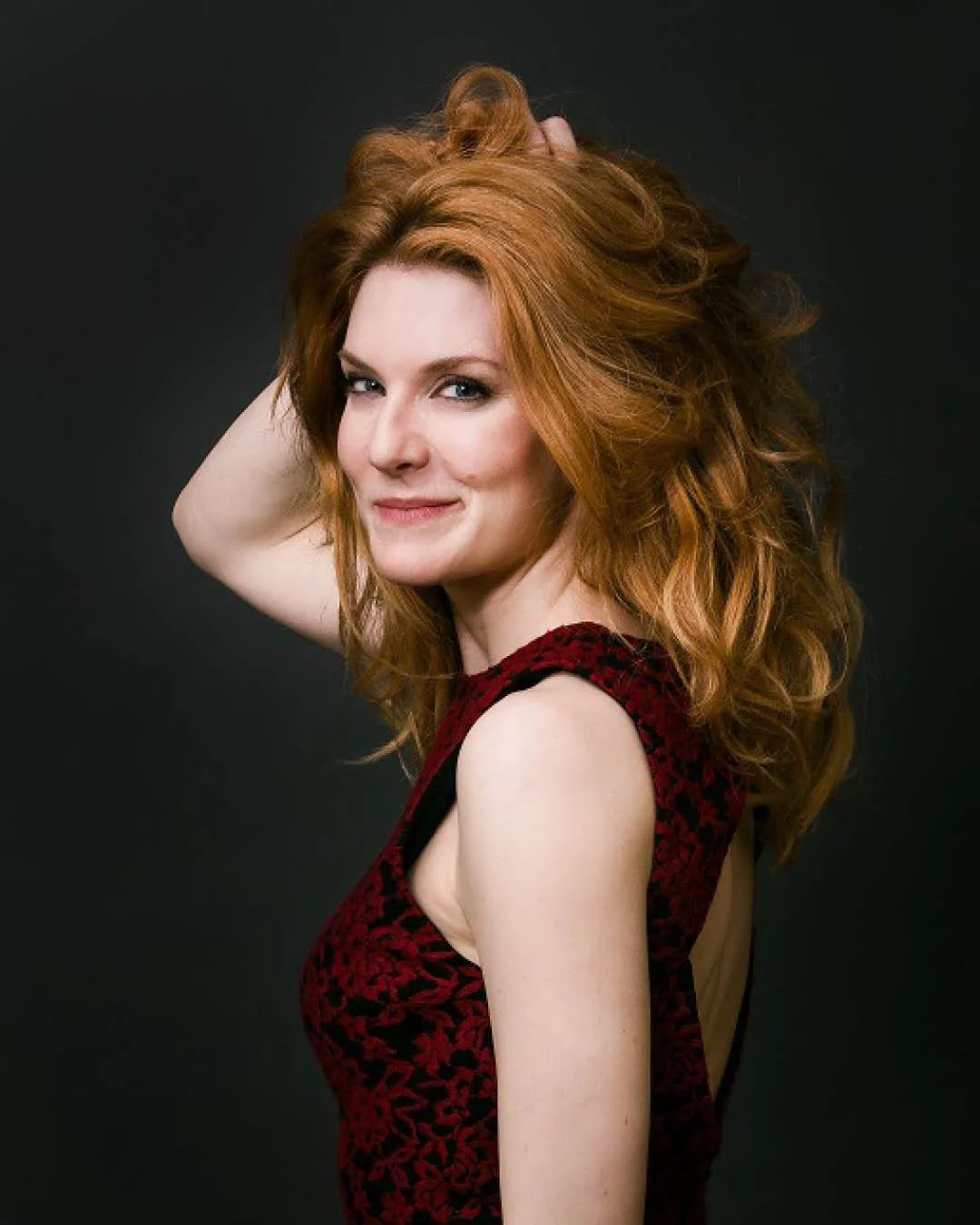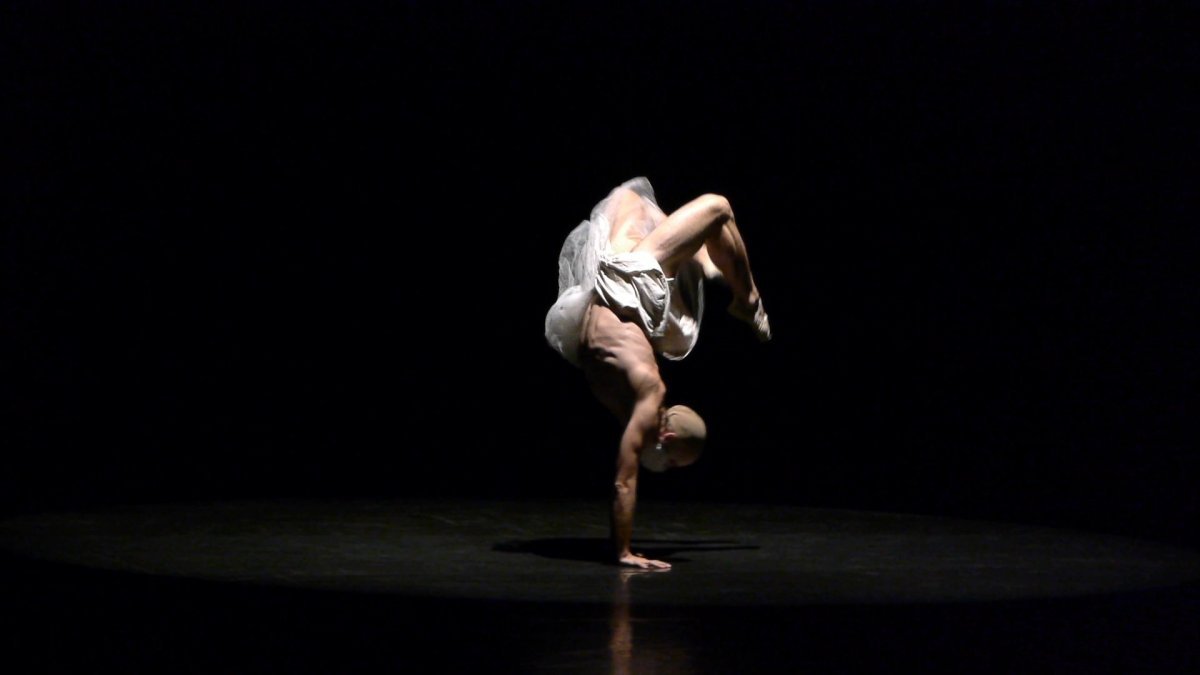Mezzo soprano Mireille Lebel keeps looking ahead in Vancouver Opera's Orfeo ed Euridice
The Vancouver-bred performer reconnects with her hometown and some of her favourite music in new dance-filled production
Mireille Lebel hails from Vancouver but has sung in opera houses around the world. Photo by PE Bergeron
Vancouver Opera, The Dance Centre, and Ne.Sans Opera and Dance present Orfeo ed Euridice at the Queen Elizabeth Theatre on December 4 at 7:30 pm and on December 5 at 2 pm
BERLIN-BASED MEZZO soprano Mireille Lebel goes to hell and back in Vancouver Opera’s new production of Orfeo ed Euridice. But for a production that centres on a trip to the underworld, the journey has been nothing but pleasant for the artist who hails from Vancouver.
To start with, the singer—who left for studies in opera studies back east at just 18, and who has performed everywhere from Germany’s Theater Erfurt to the Prague State Opera and France’s Opéra Théatre de Metz —has been able to reconnect with her hometown and family. And the all-female team of leads—herself as Orfeo, soprano Krisztina Szabó as Euridice, and soprano Mireille Asselin as Amore—have known each other for years.
“Things get done very quickly—we’re fast,” Lebel tells Stir with a laugh. “They’re friends as well as colleagues.”
For Lebel, the production, directed by choreographer and opera director Idan Cohen and conducted by Leslie Dala, is also a chance to find new shades in a fascinating character she’s sung before. Her first foray was playing the lead in the Berlioz adaptation of the Christoph Willibald Gluck 1762 work, at Toronto’s Opera Atelier back in 2015.
But first, for those wondering why a woman is singing the role, that’s the tradition now, since Gluck originally wrote the role of Orfeo for the Baroque-times’ castrati. In a sign of Lebel’s versatility, the character is a world away from the lead she played in last season’s digital production of the solo La Voix Humaine for the VO—a mid-20th-century woman unleashing emotion over the phone to her lover.
Gluck’s opera, performed here in its original Italian, is based on the Greek myth, wherein divinely gifted musician Orfeo has lost his wife Euridice. The goddess Amore invites him to retrieve Euridice and bring her back to the living world. The only stipulation: he can’t look back at her during the long journey up from the underworld.
“His single-mindedness in wanting to go and find his love is very inspiring,” comments Lebel. “It gets complex, if you think about it, that he can't let go. He can't quite look forward.
“Maybe the message is that even if you are mired in grief, and even though Orfeo does go back, the whole idea is that you always have to look ahead. He's not allowed to look back at his bride,” she continues. “My colleague Mireille Asselin pointed out this message of needing to look forward even if grief is really strong. You need to keep looking ahead and you can't be mired in a tragic event that happened in your past.”
Moving forward through grief? That’s a message a lot of us could look to as we struggle through fifth-wave COVID times. But Lebel points out the beauty of Orfeo ed Euridice is its universality; its themes speak to multiple historical moments of challenge through the centuries it’s been performed.
“Sometimes I think, as humans, we have a really good knack for making sense of things,” she reflects. “We are given a universe that doesn't make sense and we use our great imaginations to make it make sense.”
For characterizations, Lebel says she’s less likely to delve deep into historical interpretations of an operatic character than to look to movies (“if I were doing something creepy, I’d maybe watch a bunch of David Lynch films”), people she knows, or even strangers on the street.
“For me, it’s more interesting to bring to the stage the body-language things from outside,” she says. “For me, a large part of my job is creating a portrait of a person where people can see parts of themselves.”
Aside from delving into the deeper meanings in the work, Lebel has also been basking in the beauty of a score that contains some of her top, playlist-worthy opera songs, from the entrancing opening chorus onward.
“The music brings me to tears,” she says. “It always has. I have a few of the choruses that are so gorgeous on a playlist of all my favourite songs. I listen to music from this opera on a weekly basis and I have since I discovered it in 2015. It will always give my soul happiness and joy to listen to this opera.”
An added bonus with Orfeo ed Euridice? Dance is thoroughly integrated, as was the tradition in Baroque opera. In this case, Ne. Sans Opera and Dance artistic director Cohen promises to bring an artfully contemporary edge to that aspect of the production—one that draws on all the leads’ backgrounds in dance, including Lebel’s training in North Van from age 5 to 14. In addition, Lebel often shares the stage with a team of dancers—not to mention the 20-strong chorus.
“I forgot to sing a few times, the dancers are so beautiful,” she remarks.
This rendition of Orfeo ed Euridice will interweave contemporary dance.
The staging shifts between those elaborately staged sequences of moving imagery and quieter moments, says the star.
“It’s very powerful to have a stage full of revelry and then suddenly, to remove all those people, it becomes naked and very sad—and you feel the loneliness of Orfeo,” says the performer, a true actor who puts almost as much attention to gestures on stage as to her vocal work. “As an opera singer, a small movement can show everything—especially when you're on a really huge stage and people can't see your face, your body language means so, so much.”
Of course, playing Orfeo requires amazing stamina—though Lebel is by now long-acquainted with taking care of her incredible instrument.
“Orfeo—he never shuts up; he is there for the full 90 minutes, so it's more of a stamina thing,” she says. “When you get into the lead-up and have shows every day, you have to take care of yourself like an athlete, essentially.” In other words, at this point in the production, there’s no looking back.














